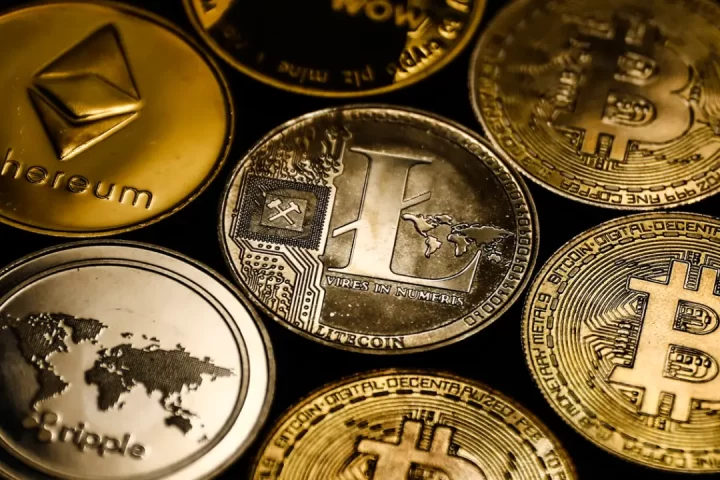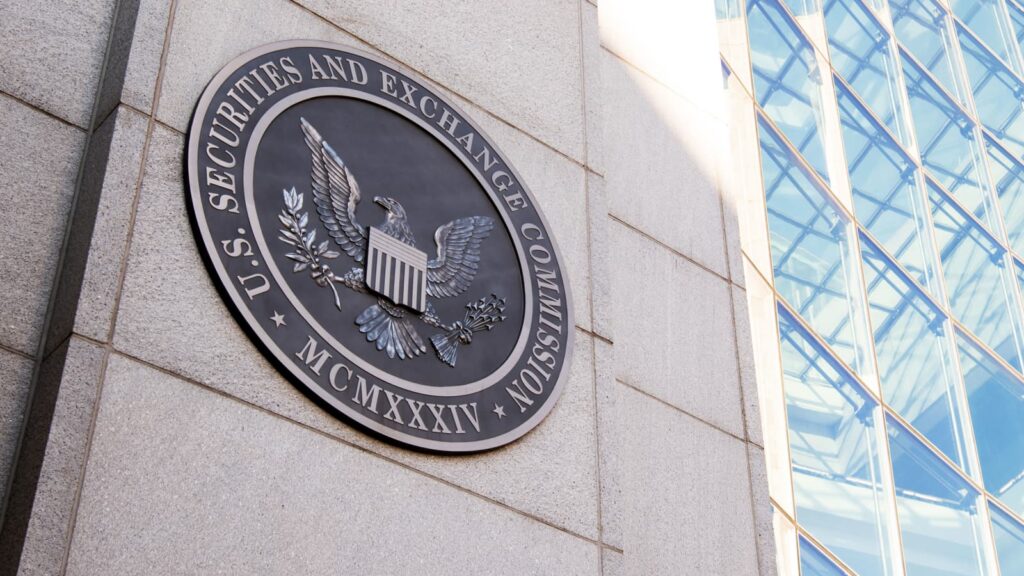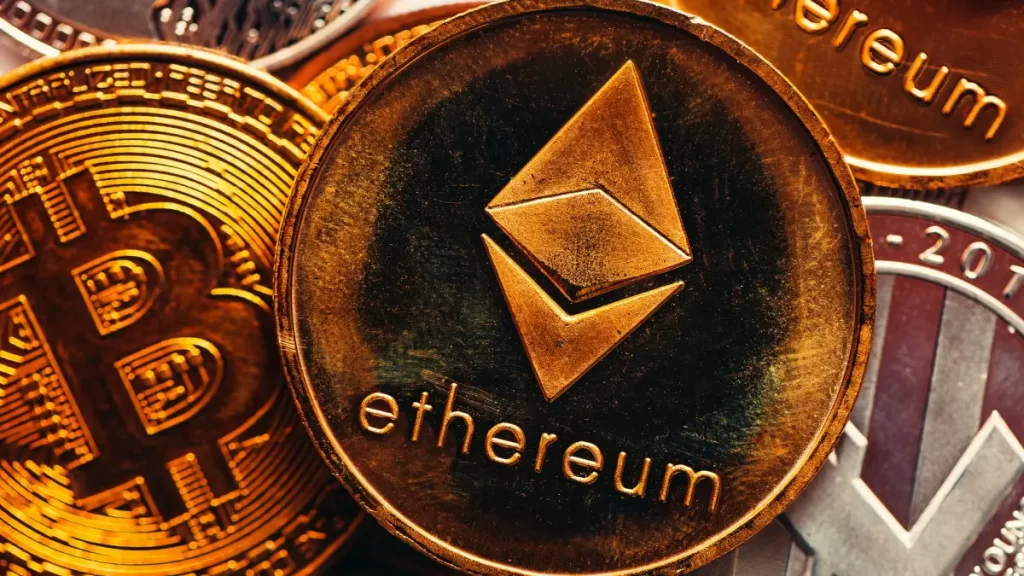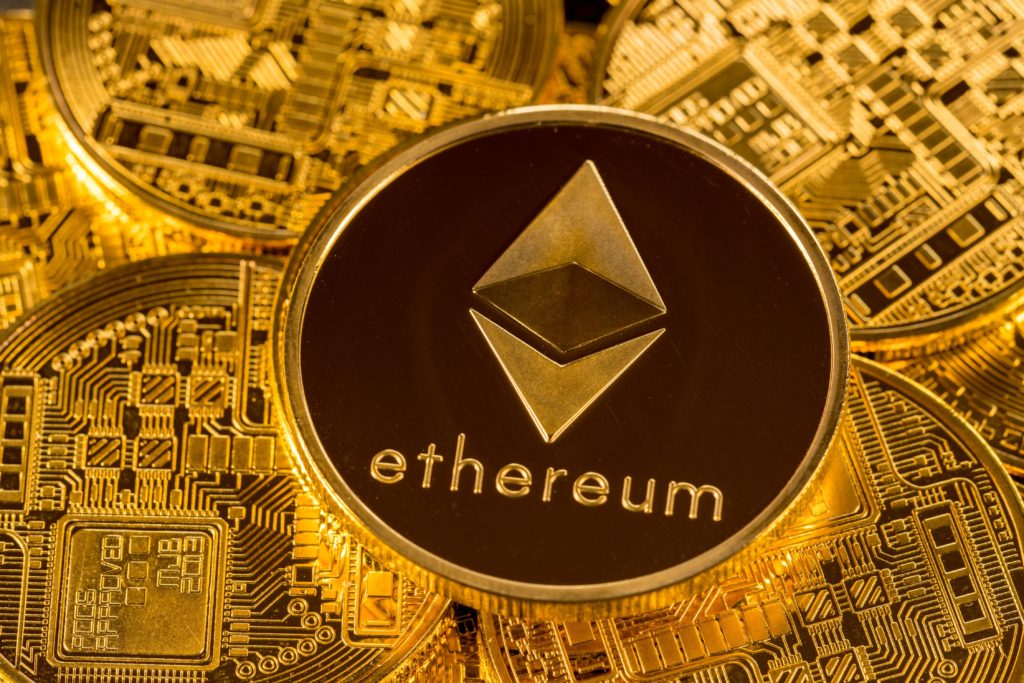The United States Securities and Exchange Commission (SEC) has decided to postpone its verdict on the introduction of spot Ether exchange-traded funds (ETFs) proposed by Hashdex and ARK 21Shares.
The delay, announced on March 19, occurred shortly before the SEC’s third and final deadline for these applications, setting the stage for a conclusive decision in late May.
The SEC has scheduled May 24 for its final determination on ARK 21Shares’ application and May 30 for Hashdex’s, marking a critical period for the future of Ether ETFs.
This postponement reflects growing skepticism among analysts about the approval prospects for the eight Ether ETF proposals currently on the table from major firms including BlackRock, Grayscale, Fidelity, Invesco Galaxy, VanEck, Hashdex, and Franklin Templeton.
Bloomberg ETF analyst James Seyffart expressed a shift in optimism on March 19, citing a notable decrease in engagement between the SEC and the ETF issuers, leading him to anticipate likely denials of the applications by May 23.
Similarly, analyst Eric Balchunas adjusted the approval probability for Ether ETFs downward to 35%, highlighting a contrast in the SEC’s approach compared to the spot Bitcoin ETF applications, which experienced more open communication.
The public’s confidence in the approval of Ether ETFs by the end of May has also waned, as indicated by Polymarket odds which have fallen to 32% from January’s more hopeful 77%.
Polymarket, a decentralized betting platform, has seen around $2.2 million wagered on the outcome of these ETF decisions.
In a related development, Grayscale is exploring the addition of staking capabilities to its Ether ETF application.
Through a consent solicitation statement to Grayscale Ethereum Trust investors, the firm proposed enabling the trust to engage in proof-of-stake validation protocols, potentially providing consideration for the benefit of shareholders.
This move aims to counteract inflationary pressures from Ethereum’s proof-of-stake protocol and keep pace with competing products offering staking.
The proposals, requiring approval from over 50% of shareholders, could position Grayscale alongside ARK 21Shares, Franklin Templeton, and Fidelity, who have recently incorporated Ether staking into their ETF offerings.
To submit a crypto press release (PR), send an email to sales@cryptointelligence.co.uk.
Starbucks has announced the discontinuation of its NFT rewards initiative, the “Odyssey Beta program,” slated to end on March 31.
This unique program engaged customers with coffee-themed games and challenges, rewarding them with digital collectible stamps as non-fungible tokens (NFTs).
These NFTs offered exclusive benefits and interactive experiences.
With the closure, the marketplace for trading these digital stamps and the company’s community discord server will also be discontinued.
Nevertheless, the Odyssey marketplace will pivot to the Nifty marketplace, allowing the ongoing trade and transfer of Odyssey stamps.
This termination aligns with Starbucks’ broader strategic shifts, although specific reasons for the program’s end were not disclosed.
The company hinted at preparing for future developments in their statement, indicating a strategic realignment.
READ MORE: Prosecutors Reveal Sam Bankman-Fried’s Plan to Rehabilitate Image Post-FTX Collapse
Launched amidst a tumultuous period for the cryptocurrency sector in September 2022, the Odyssey program was a foray into the NFT world during a time marked by significant downturns in the crypto industry, including the collapses within the Terra-Luna ecosystem and the challenges faced by Celsius and FTX.
Starbucks chose the Polygon network for its lower energy consumption, showcasing a preference for sustainability in its digital endeavors.
The decision by Starbucks reflects a growing trend among corporations to step back from NFT ventures. Notable examples include GameStop’s withdrawal from its NFT marketplace and Meta’s (formerly Facebook) cessation of NFT features on its platforms.
More recently, X (formerly Twitter) eliminated the option for premium users to showcase NFT images as profile pictures.
As the NFT market continues to evolve, industry leaders offer optimistic forecasts for its potential in 2024. Vineet Budki, CEO of Cypher Capital, predicts a shift towards NFTs serving practical, real-world applications.
Similarly, Oh Thongsrinoon of Altava Group envisions NFTs breaking out from their current digital confines into tangible sectors like precious metals and real estate.
Amidst these developments, the NFT market has shown signs of revival, with a significant uptick in trading volume and record-breaking sales on the Bitcoin network, highlighting a renewed interest and the dynamic nature of this digital asset class.
To submit a crypto press release (PR), send an email to sales@cryptointelligence.co.uk.
Ether‘s price is on track for a significant increase, potentially hitting the $5,400 mark in 2024, according to a well-regarded technical indicator.
This prediction comes from an analysis using the Mayer multiple oscillator, which compares Ether’s current price to its 200-day moving average.
This insight, provided by CryptoQuant-verified author Binhdangg, was shared in a post on March 21.
The Mayer multiple oscillator indicates that Ether might not only reach but possibly exceed $5,400 in a high-risk scenario.
Bitfinex analysts have elaborated on this projection, stating, “We expect it to reach oversold condition this year based on the fact that there is a cyclical behavior of the asset to oscillate between the overbought and oversold bands of the indicator.
However, this is a dynamic moving average-based deviation, and the upper band may be far above the $5,400 level by the time the price reaches those levels.”
Presently, Ether is trading above $3,500, marking a 27% gap from its all-time high of $4,891 recorded on November 16, 2021, as per CoinMarketCap data.
Market sentiment is increasingly optimistic, with over 62% of participants now expecting Ether to revisit its all-time high within 2024, a significant jump from 45% just a month prior, based on Polymarket odds.
The anticipation surrounding Ether’s value is also buoyed by the potential impacts of the Dencun upgrade on the ETH/BTC ratio, hinting at a possible climb to $5,900 for Ether, considering the current BTC market price. Bitfinex analysts suggest that the BTC price could rise by the time Ether reaches this significant level.
A crucial factor that might influence Ether’s price trajectory in the short to medium term is the potential approval of a spot Ether exchange-traded fund (ETF).
This event is highly anticipated but comes with uncertainties regarding regulatory scrutiny, especially from the SEC. John Lo, founder of Recharge Capital, noted that the approval process for an Ether ETF might face more challenges compared to previous Bitcoin ETF approvals.
The SEC has delayed its decisions on ETF applications from VanEck, Hashdex, and ARK 21Shares, with final decisions expected by late May.
To submit a crypto press release (PR), send an email to sales@cryptointelligence.co.uk.
Grayscale, a leading crypto asset manager, is experiencing a notable decline in investments in its Bitcoin exchange-traded fund (ETF), with recent data showing significant outflows.
On March 21, the Grayscale Bitcoin Trust (GBTC) reported outflows of $358.8 million.
This event comes on the heels of a record-breaking $642 million outflow on March 18, according to Farside Investors.
Over the past week, GBTC has seen a total of $1.8 billion in withdrawals, marking a trend of persistent outflows across the cryptocurrency ETF sector for four consecutive days.
Despite these significant outflows, experts believe this trend could be nearing its end.
Eric Balchunas, a Senior Bloomberg ETF analyst, suggested on March 21 that the majority of the outflows, particularly from the recent bankruptcies within the crypto industry, might be concluding due to their “size and consistency.” H
e further speculated that the outflows could be linked to bankrupt firms purchasing Bitcoin with cash, which could be stabilizing the market.
Balchunas optimistically noted that once this period is over, the market might only see retail-driven flows, similar to those observed in February.
READ MORE: Starknet Expands Airdrop Eligibility, Addressing Immutable X and ETH Staker Concerns
Adding to the discussion, an independent researcher known as ErgoBTC pointed out that around $1.1 billion of the recent GBTC outflows likely originated from Genesis, a bankrupt crypto lender.
The researcher highlighted the timing and volume of transactions between GBTC and Genesis as evidence of their correlation.
WhalePanda, a pseudonymous crypto market commentator, echoed this sentiment, referring to a statement from Genesis about returning assets to creditors by converting GBTC shares into Bitcoin.
The selling pressure on GBTC has been further amplified by major liquidations in the crypto industry.
On February 14, Genesis received court approval to liquidate its $1.3 billion in GBTC shares to repay creditors.
Additionally, the bankrupt cryptocurrency exchange FTX liquidated all of its 22 million GBTC shares, valued at nearly $1 billion, just a month earlier.
As of March 21, Grayscale reported its Bitcoin Trust holds assets under management worth $23.2 billion, despite a $13.6 billion reduction since its conversion to an ETF on January 11.
These developments reflect the volatile nature of the cryptocurrency market and the interconnectedness of its participants.
To submit a crypto press release (PR), send an email to sales@cryptointelligence.co.uk.
The anticipated green light for spot Ether exchange-traded funds (ETFs) might face delays beyond their final decision deadline in May.
Robby Greenfield, CEO of Umoja, a smart money protocol, highlighted to Cointelegraph the challenges large financial institutions face due to a lack of a clear strategy towards these ETFs.
He pointed out, “What makes it difficult for institutions to position themselves advantageously with Bitcoin, Ether and cryptocurrencies generally is that they can’t facilitate the same market manipulating functions as with previous commodities.
“You can’t create paper Bitcoin like you can create paper gold.” Several prominent firms, including BlackRock, Grayscale, and Fidelity, are in the race to launch an Ether ETF.
Despite these efforts, Bloomberg ETF analyst James Seyffart anticipates a rejection of the current Ether ETF applications in late May, referencing a March 19 post on X.
This expectation follows the United States Securities and Exchange Commission’s (SEC) recent postponement of its decision on the Hashdex and ARK 21Shares spot Ether ETFs, with a final verdict due by late May.
The unique challenges posed by the decentralized nature of cryptocurrencies like Ether complicate the development of institutional strategies for ETFs, though Greenfield believes approval is inevitable.
READ MORE: Best Crypto to Buy Now: We Analyzed the Top Coins for 2024
He asserts, “Whether it gets approved in May or in December, it’s inevitable… I wouldn’t understand why it wouldn’t be approved, particularly given that even the SEC’s perspective on Ether has been increasingly one of it being a commodity rather than a security.”
The SEC has set specific deadlines for the decision on applications from various companies, ranging from May 23 to August 7.
Moreover, the hesitance of large institutional players to dive into decentralized finance (DeFi) stems from infrastructure inadequacies, which also deter traditional retail investor participation.
Greenfield emphasizes the need for more accessible investment strategies and infrastructure to bridge this gap, especially for retail investors who, despite owning a significant portion of global assets under management, face limited wealth creation opportunities.
To this end, Umoja has raised an additional $2 million, bringing its total seed funding to $4 million, aiming to democratize access to asset management strategies.
Greenfield underscores the importance of catering to retail investors, who are projected to hold a larger share of global assets in the coming years, according to World Economic Forum estimates.
To submit a crypto press release (PR), send an email to sales@cryptointelligence.co.uk.
The Shiba Inu (SHIB) community is buzzing with anticipation following a cryptic post by the SHIB team on X, hinting at significant growth prospects amidst the current cryptocurrency bull market.
Despite a recent market downturn, CoinMarketCap data indicates that the meme-based digital currency is on a recovery path, albeit with an 8.24% decrease in the last day and a 17.43% fall over the previous week.
Undeterred by the recent dip in prices, the Shiba Inu team shared an engaging video featuring the SHIB mascot as the famed Batman signal, accompanied by the message, “Not the hero we deserve, but the one we need.”
This gesture has invigorated the Shiba Inu community, leading to various interpretations of the message’s deeper meaning.
Prominent community figure, SHIBKIND, speculated that the post might signal the near launch of an enhanced ShibaSwap decentralized exchange.
Meanwhile, LeonidasSHIB, another key community member, linked the teaser to statements by Shiba Inu’s lead developer, Shytoshi Kusama, suggesting SHIB’s potential ascent into the top five cryptocurrencies by market cap.
LeonidasSHIB expressed confidence in SHIB’s journey, emphasizing a future marked by dominance and greatness.
This optimistic outlook is supported by Shiba Inu’s recent performance, which saw a significant price increase earlier in the month, reminiscent of heights last reached in 2021.
With the community poised for a robust bull run, LeonidasSHIB anticipates an unprecedented display of strength from SHIB, suggesting an exciting future for the cryptocurrency.
The speculation extends within the community, with some members envisioning SHIB surpassing Dogecoin (DOGE) to achieve a $100 billion market cap.
The Shiba Inu team’s latest post on X has not only piqued interest but also amplified confidence in SHIB’s potential in the ongoing bull market, stirring investor optimism for what lies ahead.
To submit a crypto press release (PR), send an email to sales@cryptointelligence.co.uk.
Despite a recent 15% drop from its all-time high of $73,738, analysts are optimistic about Bitcoin’s price surge following its upcoming halving event.
Charles Edwards, founder of Capriole Fund, addressed the volatility surrounding these periods in a March 19 X post, suggesting the year post-halving offers the best “risk-reward” for investors.
He anticipates the halving, expected between April 18 and 20, will lead to the shutdown of less efficient mining operations.
On 20, Bitcoin’s value dipped to $61,593 and has seen a slight recovery to $62,690, according to CoinGecko. Edwards remains hopeful for future price increases, citing a combination of reduced supply growth and increasing traditional finance (Tradfi) interest as key drivers.
In contrast, Ki Young Ju, CEO of CryptoQuant, attributes Bitcoin’s market dynamics to spot exchange-traded fund (ETF) flows rather than the halving itself.
He predicts mining expenses will soar post-halving, necessitating a price point that ensures profitability for miners, with direct costs per coin expected to hit around $37,000.
Crypto analyst Rekt Capital, sharing insights with over 430,000 followers on X, predicts further price drops but maintains a bullish outlook.
He indicates that Bitcoin is in a “danger zone” for pre-halving declines, referencing historical patterns.
Previous halvings saw significant price retractions before recovery; the 2020 event witnessed a 50% pullback attributed partly to the COVID-19 pandemic, with the market stabilizing around $10,000 thereafter.
The 2016 halving resulted in a 33% decrease in Bitcoin’s value, setting the stage for substantial gains by year-end and a bull market in 2017 with a peak of $20,000.
The 2024 halving enters somewhat unexplored territory, given Bitcoin’s current price levels and enhanced institutional support, particularly from spot Bitcoin ETFs, marking a departure from past trends.
To submit a crypto press release (PR), send an email to sales@cryptointelligence.co.uk.
On March 20, Bitcoin faced the possibility of dropping below $61,000 as experts cautioned that support levels might be on the verge of breaking.
According to data from Cointelegraph Markets Pro and TradingView, Bitcoin’s price experienced further declines, reaching a low of $60,760 on Bitstamp.
Currently, Bitcoin has fallen 17.5% from its peak, contending with selling pressure due to several significant challenges.
Reports have highlighted factors such as withdrawals from the U.S.’s spot Bitcoin exchange-traded funds (ETFs) and the Federal Reserve’s decision on interest rates on March 20 as key contributors to the downward pressure on Bitcoin’s value.
Although the outcome of the Federal Open Market Committee (FOMC) meeting seems predictable, much attention is focused on Fed Chair Jerome Powell’s remarks for clues on the future of risk assets.
The Kobeissi Letter, a trading analysis source, remarked on the situation via X (formerly Twitter), stating, “With the Fed meeting less than 24 hours away, it’s unlikely the Fed changes rates tomorrow.
“However, all eyes will be on guidance after the recent events. We maintain the view that it is far too soon to pivot.”
READ MORE: Best Crypto to Buy Now: We Analyzed the Top Coins for 2024
“Current projections from CME Group’s FedWatch Tool indicate only a 1% probability of a policy shift at the March 20 meeting, with a slight increase to 9.1% for the subsequent meeting in May.
“The situation is further complicated by consecutive days of net outflows from spot Bitcoin ETFs, according to data from the UK-based investment firm Farside.
Despite the outflows from the Grayscale Bitcoin Trust (GBTC) being less than the record $642 million on March 19, the reduced inflows to other ETF products resulted in underwhelming overall statistics.
Financial commentator Tedtalksmacro noted, “Almost $500M USD has flowed out of spot BTC ETFs in the past two trading days,” attributing the slowdown to traders’ cautious stance ahead of the FOMC meeting and the impact of tax season in the U.S.
He suggested, “Regular programming will resume, but some chop first.”
QCP Capital, in its daily bulletin to Telegram subscribers, pointed out the potential significant impact of the second consecutive day of net outflows on Bitcoin’s price stability, raising concerns over the ability of inflows to other ETFs to counterbalance the outflows and questioning whether this could lead to a net positive outcome.
To submit a crypto press release (PR), send an email to sales@cryptointelligence.co.uk.
The introduction of spot Bitcoin exchange-traded funds (ETFs) has significantly altered the landscape for both institutional and retail investors, leading to a divided market and impending shifts.
Retail investors, especially those new to Bitcoin, are increasingly investing through advisors in spot BTC ETFs, potentially making Bitcoin a common asset in household portfolios alongside traditional investments like gold.
Conversely, early adopters and enthusiasts of Bitcoin, who value its decentralization and resistance to censorship, feel their pioneering advantage is diminishing as mainstream adoption grows.
The essence of Bitcoin, from the perspective of its early supporters, seems compromised as it becomes integrated into the financial system it aimed to disrupt.
This situation is likened to a once-exclusive restaurant becoming too popular and corporatized, losing its original charm and purpose.
The finite nature of Bitcoin means its price is likely to increase as demand grows, but significant profits are poised to go to large asset managers handling the spot BTC ETFs, contrary to the decentralized ethos of Web3.
This scenario has led to a polarization within the crypto market: traditional investors entering through regulated financial products and long-standing crypto advocates seeking untethered access to blockchain technologies.
READ MORE: Reddit Under FTC Investigation Over AI Data Licensing Practices Amid IPO Preparations
This division is prompting a shift towards altcoins, spurred by the desire for diversification, higher returns, and adherence to the foundational principles of cryptocurrency.
Recent trends indicate a potential shift in market dynamics, with altcoins showing signs of gaining against Bitcoin, hinting at a forthcoming period of growth.
This movement could redefine the crypto landscape, elevating certain altcoins to prominence and reshaping investment strategies.
Although Bitcoin may remain a stabilizing force in investors’ portfolios due to its lower volatility, a shift towards more decentralized and potentially more lucrative alternatives is likely.
This realignment benefits institutions regardless of retail investor strategies, as the inherent scarcity and demand for Bitcoin ensure its price resilience.
However, a shift towards altcoins could significantly impact the decentralized finance (DeFi) sector, potentially catalyzing rapid growth beyond its current valuation.
As the market continues to evolve, investors on both sides of the divide face a dynamic and potentially rewarding future.
To submit a crypto press release (PR), send an email to sales@cryptointelligence.co.uk.
John Lo, the founder of Recharge Capital, shared insights with Cointelegraph regarding the future of Ether exchange-traded funds (ETFs) in the U.S., emphasizing a less certain path compared to the previously approved Bitcoin ETFs.
He anticipates that the Securities and Exchange Commission (SEC) will intensify its examination of all forthcoming crypto-based ETFs, particularly those related to Ether.
Lo highlighted, “Scrutiny towards cryptocurrency ETFs has only grown, as you could argue to a certain degree that the SEC was forced to approve the Bitcoin ETFs because of its case with Grayscale.
No doubt, the SEC internally views that as a huge loss for themselves.”
Several firms, including BlackRock, Grayscale, Fidelity, Invesco Galaxy, VanEck, Hashdex, and Franklin Templeton, are in the race to launch an Ether ETF.
Critical dates loom for the SEC to make decisions on these applications, with deadlines spanning from May 23 for VanEck, to August 7 for BlackRock.
Despite potential regulatory hurdles, Lo is optimistic about Ethereum’s resilience, attributing its strength to the platform’s innovative capabilities and recent upgrades.
He stated, “Whether or not there’s an ETF, Ethereum will be fine.
“I think it’s coming out with lots of innovation, use cases, and we’ve already seen alternative financial systems being built on the [network], which is incredibly interesting.”
Lo also touched upon the challenges within the decentralized finance (DeFi) sector, particularly the obstacles related to user experience that deter both institutional and retail participation.
He believes that the complex nature of DeFi services and the high cost of user acquisition, estimated at $10 to $12 per user, are significant barriers limiting DeFi’s user base.
Despite these challenges, Ethereum continues to thrive as a central hub for DeFi activities.
The total value locked (TVL) in Ethereum’s DeFi protocols surged 80.3% over the past year, reaching $51 billion as of March 18, with a 21.6% increase in unique wallet addresses, signaling sustained growth and interest in the ecosystem.
To submit a crypto press release (PR), send an email to sales@cryptointelligence.co.uk.










